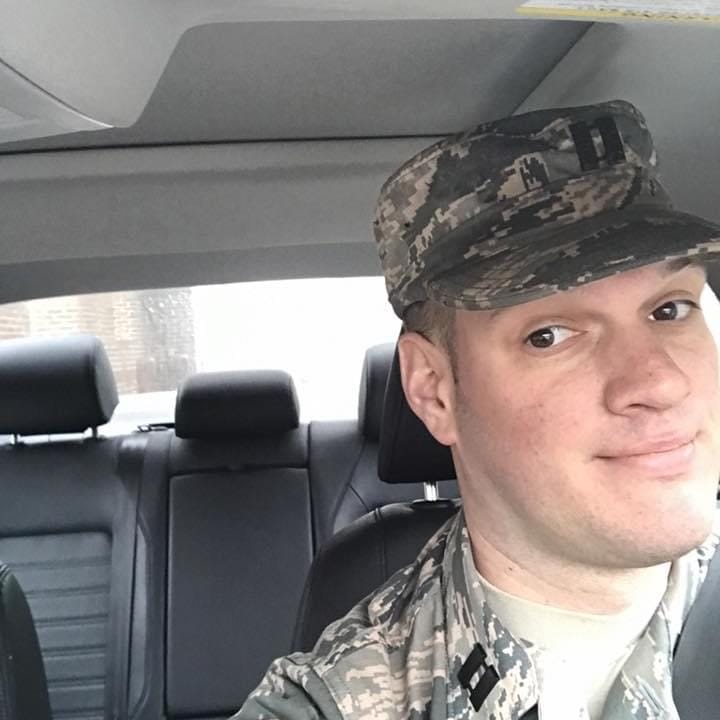By Joshua Seefried
Love is a powerful force, often defying logic and reason. Yet, there are moments when the barriers erected by society and circumstance render it impossible to fully embrace. My love life is a testament to a love that never had the chance to flourish—a series of relationships that were beautiful yet forbidden, powerful yet transient. The shadow of “Don’t Ask, Don’t Tell” (DADT) loomed over my heart, shaping my romantic encounters into fleeting moments of connection that, while short-lived, remain etched in my memory with an intensity that time cannot fade.
Under the constraints of DADT, the military policy that prohibited openly gay, lesbian, and bisexual individuals from serving, love was a silent affair. The risk of discovery and the threat of discharge meant that my relationships had to be hidden, their existence denied in public spaces. Despite the secrecy, or perhaps because of it, these relationships carried an extraordinary weight. The stolen glances, the whispered confessions, the rare moments of intimacy—all were charged with a profound sense of urgency and significance.
One such love was with a fellow service member. Our bond was immediate, a connection that sparked in the most unlikely of places—a shared moment of laughter during a routine briefing. As our friendship deepened, so did our feelings for one another. Yet, every affectionate gesture had to be concealed, every loving word masked by casual conversation. The fear of exposure was ever-present, casting a shadow over our moments together. Despite this, or maybe because of it, our love felt invincible, a defiant beacon of hope in a world determined to keep us apart.
This love, and others like it, were brief. The pressures of maintaining secrecy, coupled with the demands of military life, made it impossible to sustain these relationships for long. The end was often abrupt and painful, marked by a sense of loss and what-ifs. Yet, in those moments of sorrow, there was also a recognition of the profound impact these relationships had on me. They taught me about resilience, about the capacity of the heart to find connection even in the harshest of circumstances. They were forbidden, yes, but that very fact made them all the more powerful, locked in time as moments of pure, unfiltered emotion.
Looking back, I realize that these relationships, though they did not last, were instrumental in shaping my understanding of love. They were a testament to the human spirit’s ability to seek out connection, even in the face of insurmountable odds. Each love, though fleeting, left an indelible mark on my heart, a reminder of the beauty and fragility of human connection.
Despite these experiences, I find myself still grappling with how to love properly. The lessons learned under DADT were harsh and unforgiving, teaching me to hide my true self, to compartmentalize my emotions. Even now, in a world that is more accepting, I struggle to fully embrace love without the lingering fear of rejection or loss. The echoes of those forbidden relationships resonate within me, a constant reminder of the barriers that once stood in my way.

Returning to the Air Force Academy years later, I felt a mixture of pride and jealousy. Seeing cadets openly express their love, bringing their partners to events like the Ring Dance, was a stark contrast to my own experiences. I couldn’t help but feel envious of the freedom they now have, a freedom I could only dream of during my time there. While I celebrate their ability to love openly, it also underscores the emotional scars carried by those of us who lived through the DADT era.
To the loves that have occurred, I offer my heartfelt thanks. Thank you for your patience, for your understanding, and for your willingness to share in those fleeting moments of connection. I am deeply sorry that our love did not last, that the weight of secrecy and the demands of our circumstances pulled us apart. Know that it was not entirely our fault. The societal constraints and the policies that dictated our lives played a significant role in our separation. Yet, despite the pain of parting, I cherish the memories we created together, holding them close as reminders of the capacity for love to flourish even in the most challenging of times.
As a society, we still have much to learn about how to support those who have endured the trauma of hiding their true selves. The lingering effects of such experiences are not easily erased, and the journey to healing is ongoing. Acknowledging this trauma and finding ways to support those affected is essential for fostering a truly inclusive environment.
As I personally continue to navigate the complexities of love, I carry with me the lessons of those forbidden relationships. They have taught me about the importance of authenticity, the need to fight for one’s right to love openly and freely. They have shown me the resilience of the human heart, its ability to find light even in the darkest of places. May our stories serve as a reminder of the strength and beauty of forbidden love, and the enduring hope for a future where love knows no bounds.
Joshua Seefried graduated from the U.S. Air Force Academy in 2009 in a top cadet leadership position, and in 2010 he co-founded OutServe, an association of actively-serving LGBTQ military personnel. Nationally known only as “JD Smith” under “Don’t Ask, Don’t Tell”, he connected thousands of LGBTQ servicemembers, appeared in shadow on national TV, liaised with Pentagon and White House officials, and worked to overturn DADT. He also authored “Our Time: Breaking the Silence of ‘Don’t Ask, Don’t Tell” published by Penguin Press.













